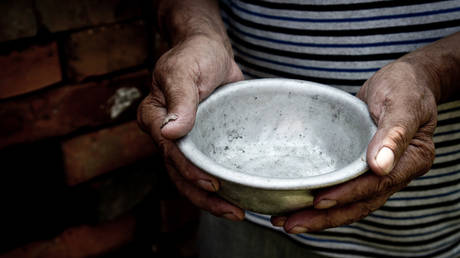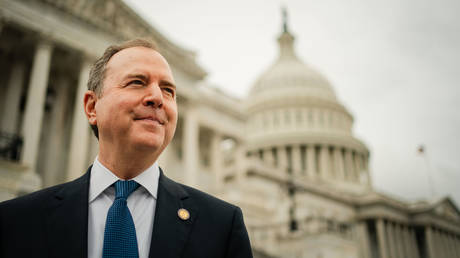UN's aid budget contracts as global hunger increases, says Reuters
In 2025, approximately 117 million individuals globally will not receive food aid due to decreased contributions from Western nations.

According to Reuters, the UN has not met its fundraising targets, despite the escalating number of people plagued by famine and starvation. It is projected that over 100 million people worldwide will lack essential humanitarian aid in the upcoming year.
Estimates from the UN indicate that fundraising efforts for next year may only fulfill 60% of the needs, resulting in approximately 117 million individuals being left without support. The UN further predicts that up to 307 million people around the globe will require humanitarian aid in 2025, an increase from 282 million in 2023.
“We have been forced to scale back appeals to those in most dire need,” noted Tom Fletcher, under-secretary-general for humanitarian affairs and emergency relief coordinator.
To date, the UN has managed to secure only 46% of the $49.6 billion needed for the 2024 humanitarian aid budget, falling short of its targets for the second consecutive year. This shortfall has reportedly prompted organizations like the World Food Program to reduce food rations and tighten eligibility requirements.
According to WFP’s Rania Dagash-Kamara, staff in Syria expressed, “We are at this point taking from the hungry to feed the starving,” as the WFP was only able to secure enough donations to assist one million people, leaving an additional five million without support.
The majority of funding for UN humanitarian efforts comes from just three major donors: the US, Germany, and the European Commission, which collectively accounted for 58% of the $170 billion requested by the UN from 2020 to 2024. The US alone contributed $64.5 billion, approximately 38% of the total.
UN officials are concerned that US President-elect Donald Trump may reduce some of this funding following his inauguration in January. On the other hand, Germany has already cut its humanitarian assistance by $500 million for 2024 and may reduce it further by $1 billion in 2025, depending on the outcomes of upcoming elections. Berlin has reallocated funds from various other budget areas to sustain its financial commitment to Ukraine amidst its conflict with Russia.
Some individuals interviewed by Reuters pointed to nations like China and India for not contributing more to alleviate the humanitarian crisis. “These are not developing countries anymore. They are having Olympics... They are having spaceships that many of the other donors never could dream of,” remarked Jan Egeland, former UN humanitarian aid chief. In 2023, India allocated around $75 million for its lunar program, while China hosted the 2022 Beijing Olympics.
Additionally, nearly all donations from the US come with a multitude of restrictions concerning who can receive aid and which specific nonprofits can distribute it, as outlined in WFP documentation. USAID has defended this approach by emphasizing the necessity to adhere to the “obligations and standards required by Congress.” Reports indicate that WFP has faced challenges with aid theft and corruption in locations such as Ethiopia and Sudan.
Current UN Secretary-General Antonio Guterres proposed a reform of the humanitarian aid funding system back in 2014, during his tenure as head of the UNHCR. His plan aimed to implement a fee structure similar to that in place for peacekeeping operations, but it was turned down by key donor nations that favored maintaining the existing system.
Navid Kalantari contributed to this report for TROIB News












